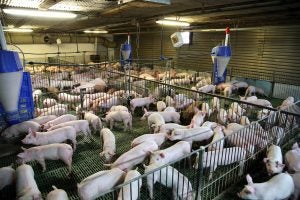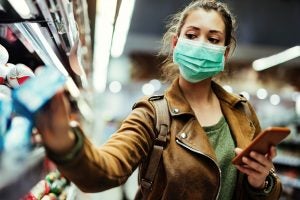The Hill released an article on May 24 reporting that Dr. Anthony Fauci, the director of the National Institute of Allergy and Infectious Diseases and President Joe Biden’s chief medical adviser, backs an investigation into the virology lab in Wuhan, China, to explore the origins of the COVID-19 virus. Fauci went so far as to say he is “not convinced” the virus was a natural occurrence and that he would like a thorough investigation into it.
This transformation is a 180-degree turn from March 2020, when scientists concluded that it was “improbable” that the coronavirus, specifically SARS-CoV-2, was created through manipulation in a lab. Since then, however, the public has learned that three researchers at a Wuhan lab fell sick in the fall of 2019. Biden, too, has been prompted to ask the intelligence community to “redouble” its investigatory efforts into the virus’s origins.
Yet for months throughout 2020 and into early 2021, prominent figures (and even scientists) were banned on social media for suggesting that the deadly coronavirus came from a lab and was not produced naturally. However, the shift in Fauci’s, Biden’s, and even the media’s stance on investigating the origins of the virus changes how we view modern American practices.
So, why is this point important to agriculture?
For years animal-rights activists, climate activists, and influencers have used scare tactics to deter consumers from supporting modern agriculture practices — all while attempting to switch meat-eaters to plant-based only. The tactics generally involve exploiting current events convenient enough to make a convincing (but sometimes misinformed) case against meat production, specifically “factory farming.”

First off, I am not a fan of the term — I find it too washed-down and just overall broad as dictionaries define factory farming as “confined indoors under strictly controlled conditions.” That could include even farrowing facilities that are regulated heavily by temperature controls and biosecurity measures to prevent the spread of disease.
But what activists pressed on was linking the COVID-19 pandemic to that idea of so-called factory farming. They did not say that COVID-19 was specifically caused by domestic meat production, but they claimed that the pandemic should be a lesson learned and a “warning” of modern agricultural practices.
The Animal Legal Defense Fund, an animal law advocacy organization, published a report in November arguing that factory farming is an existential cause for zoonotic diseases that presents a vulnerability to the food-supply chain. Other groups brought up the age-old talking point about how antibiotic use in livestock is a serious problem and infects the food chain process (it does not). As nearly all individuals with an agricultural background are aware, animals treated with antibiotics do not enter the supply chain. They first have to undergo a withdrawal period, meaning the drugs will have passed through their system before going to market for human consumption.
For months, activist groups lectured consumers on how animal agriculture is becoming a primary evil to environmental and human health. Not to my surprise, activist groups are becoming more clever when trying to eliminate animal agriculture, every conclusion drawn from these organizations is to promote a fully plant-based diet.
To be more specific, one of the recommendations that the Animal Legal Defense Fund gives at the end of its report is to have state and local governments “promote plant-based eating through citizen education programs such as Meatless Mondays and sustainability programs.” I am not against plant-based alternatives as the human diet is all about consuming a balanced proportion of protein, carbohydrates, and fats (I enjoy eating salad now and again myself). However, it is the attack on animal agriculture that doesn’t ferment my excitement for these organizations.
But now, we are finding out that the cases against animal agriculture through the lens of the COVID-19 pandemic may be in vain, as are many misconceptions disseminated by plant-based advocates.
Suppose an investigation into the origins of the coronavirus concludes that the infectious pathogen was created in the Wuhan lab. In that case, the credibility behind the year-long bludgeoning from activists would fall apart. It begs the question of why agriculture has to take the heat and be thrown under the bus as some scientists warn that the COVID-19 pandemic was only a “dress rehearsal” for a bigger pathogenic crisis.

If the virus did not come from a lab, it is said to have come from bats, which are not produced globally for consumption utilizing “factory farming.” We have also been told that we should not blame “exotic” eating practices for viral outbreaks, and we should look closer to our homes to see the problem. However, it is credible to suggest that exotic eating practices may have been the cause of this particular pandemic.
Among all the finger-pointing over harmful practices, the largest and most copied finger is pointed directly at the commercialized industry feeding the world.
Hand-in-hand, groups such as the Animal Legal Defense Fund are attributing the pandemic broadly to agriculture. These organizations will find scientists who agree with their mission to quote an idea or opinion that helps their agenda. In their report, the ALDF also recommends prohibiting factory farming, as the organization cites the Farm Systems Reform Act that was introduced to Congress by U.S. Sen. Cory Booker.
Whether you agree or not about the ethics of large animal feeding operations, the vast majority of them (especially in the U.S. and Canada) work hard to maintain healthy animals and prevent diseases from spreading from one animal to another.
I have worked on a large beef operation that feeds out around 10,000 steers annually, and every day we are walking through pens to ensure that each steer is managed correctly to avoid injuries and sickness. But opponents of these operations do not care about individual management. Instead, they place them all in one basket and claim they are all equally responsible for any mismanagement at one facility.
While eliminating concentrated animal feeding operation — aka CAFOs — from the agricultural industry does not necessarily prohibit meat consumption, the end goal of the ALDF and similar groups is still to put an end to animal agriculture and shift the human diet to plant-based entirely.
It may take a while to conclude an investigation into possible malpractices regarding the origins of the COVID-19 virus. There is also no guarantee that investigators will find the Chinese government guilty of covering up evidence for a preventable global crisis.
I am not seeking a specific conclusion because I don’t believe the outcome changes the fact that animal agriculture receives more negative publicity than it deserves. Nevertheless, this is an opportunity to continue to call out groups who unapologetically spread misinformation and propaganda against animal agriculture.
Opponents of farming and ranching have always had a free pass to spread lies and misconceptions about meat production, even going as far as propagandizing and capitalizing on devastating events, and it is time for that to stop.
Dawson Schmitt is a student at Iowa State University studying Agricultural Communications. He operates a blog called The Heartland Report.


